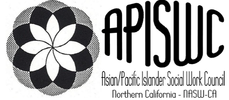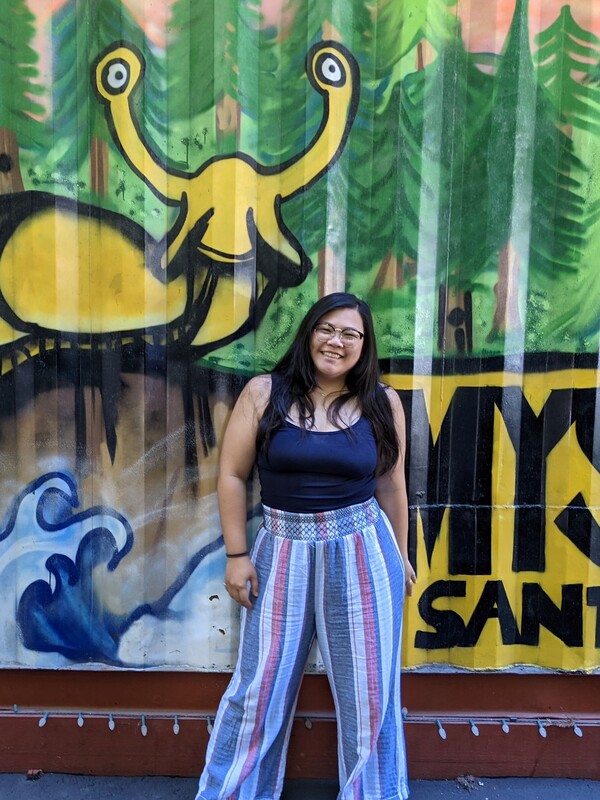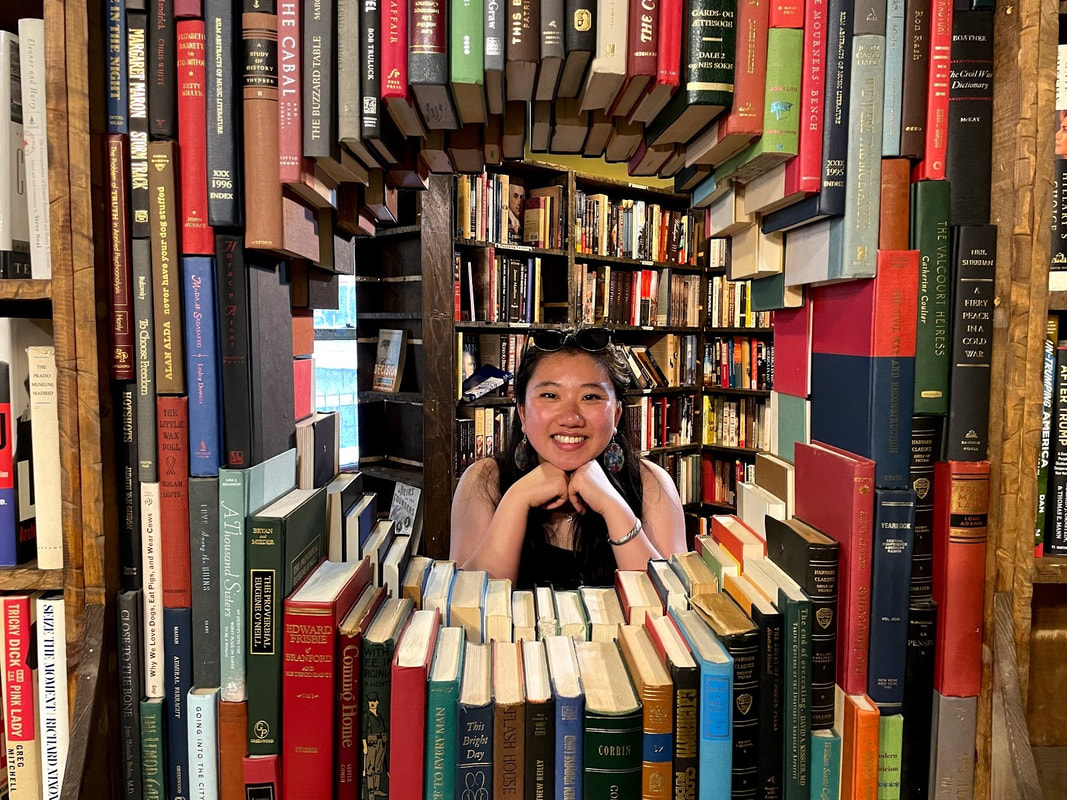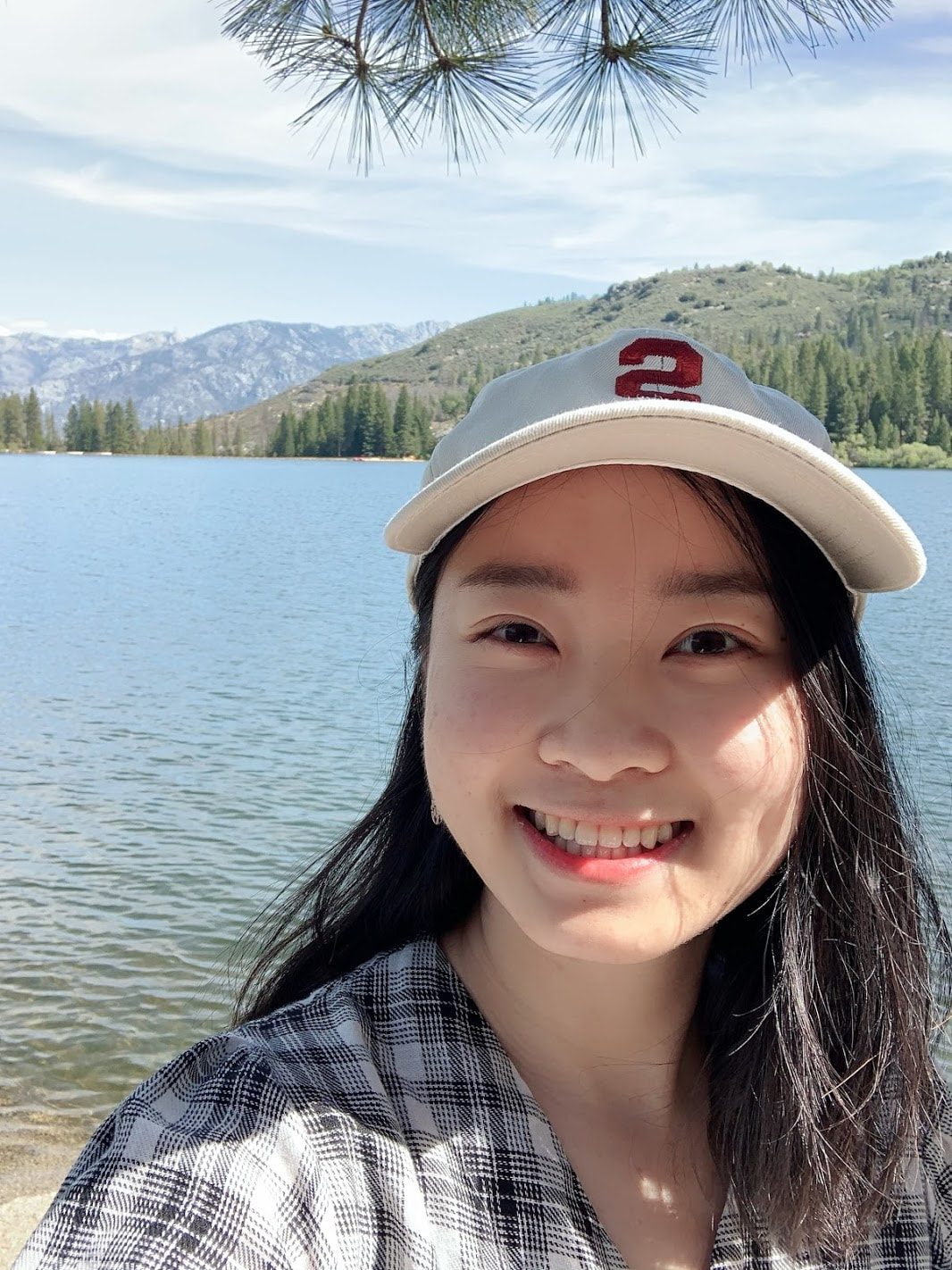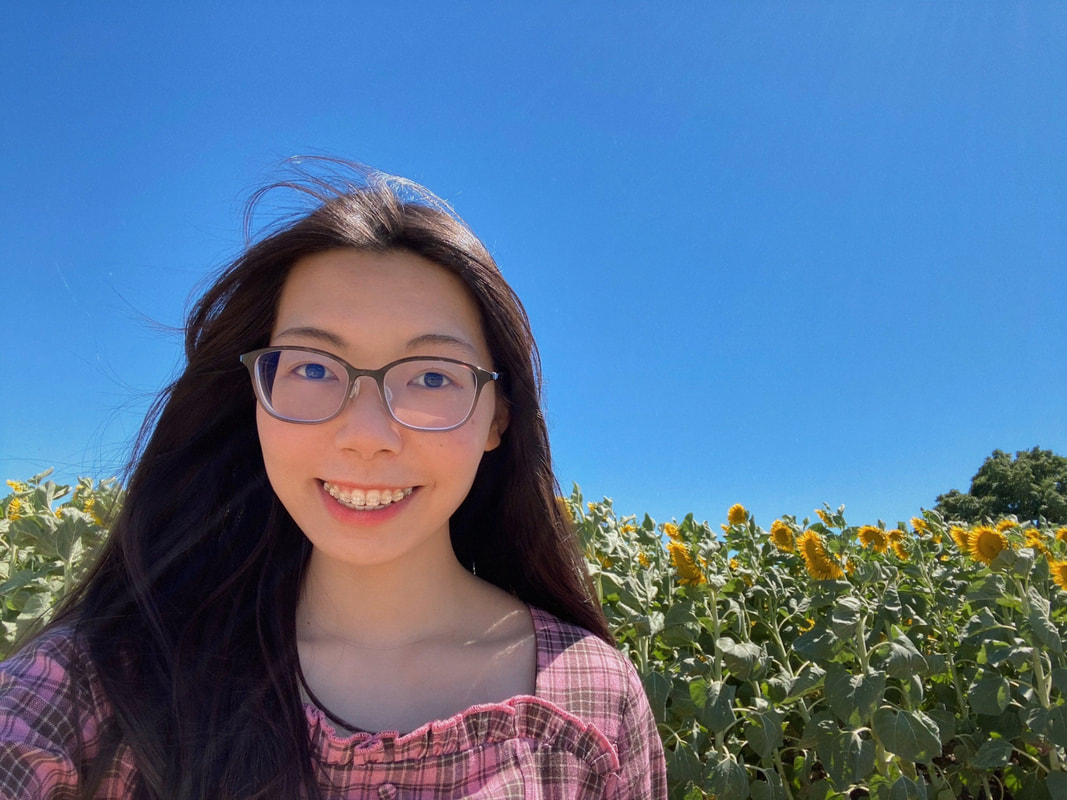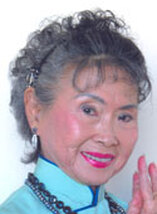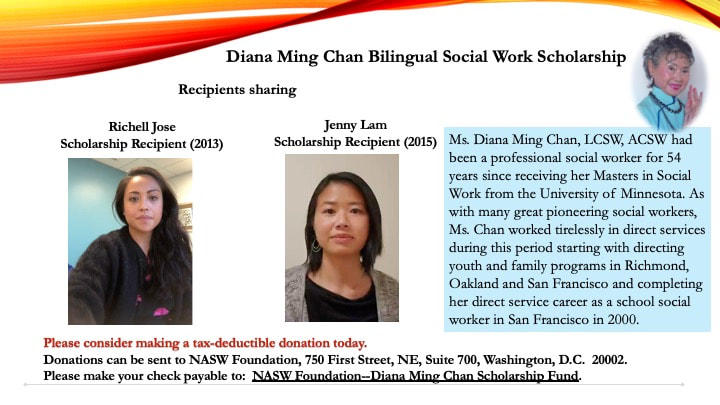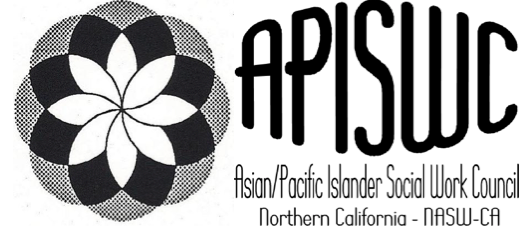2024 Diana Ming Chan Bilingual Social Work Scholarship-Application
The Asian Pacific Islander Social Work Council (APISWC) of the California Chapter of NASW is proud to announce the applications for the 2024 Diana Ming Chan Bilingual Social Work Scholarship. Diana who lived from 1929 to 2008 was a well-respected social worker in the San Francisco Bay Area. She was one of the first Cantonese bilingual social workers in San Francisco Chinatown and advocated for the need of bilingual social workers. Diana was also known for her dumpling diplomacy where she invited top politicians to her home to discuss the importance of school social workers. Eventually, Diana was able to effectively lobby the San Francisco Board of Education to open up school positions for social workers.
Up to three scholarships in the amount of $500 - $1,000 each will be awarded at the NASW-CA Annual Conference in October 2024. BSW and MSW students are strongly encouraged to apply.
Individuals applying for the scholarship must meet the following criteria:
- Must be an undergraduate or graduate social work student enrolling in his/her final year
beginning in Fall 2024.
- Be bilingual (beginner, conversational, proficient, or fluent) in an Asian language, including
any East Asian language, Southeast Asian language, or Pacific Island language
- Be enrolled at any of the following universities: San Jose State, CSU East Bay, San Francisco State, or UC Berkeley.
- Applicants do not have to be a current member of the APISWC, but scholarship winners will be required to become actively involved with APISWC as follows: Beginning 2 months after graduation, recipients will be asked to attend 70% of Steering Committee meetings and 50% of events hosted by APISWC for a 12-month period.
The application packet must include the following:
1. Cover letter including applicant's name, mailing address, email address, and phone number.
2. One letter of recommendation.
3. Copy of most recent official school transcript
4. Limit of 500 words responding to: "How would you advance social work in the Asian and
Pacific Islander Community?" and,
5. Limit of 500 words responding to: "How do you plan to or have you used your bilingual skills to help others, especially addressing challenges during difficult times?”
All application packets must be electronically submitted by 5:00 PM, Monday, June 10, to [email protected] (Extended deadline: 5:00 PM, Friday, June 24, 2024 )
Winners will be notified by August 5, 2024.
Any questions can be emailed to [email protected]
More information about the Diana Ming Chan (DMC) Bilingual Social Work Scholarship can be found on our website at: http://www.apiswc.org/ and https://www.naswfoundation.org/Our-Work/NASW-Social-Work-Pioneers/NASW-Social-Workers-Pioneers-Bio-Index/id/592
and https://www.youtube.com/watch?v=Rwukszc5H0Y
You can hear more from our Council co-founder, Nancy Lim-Yee, and some past scholarship recipients: https://youtu.be/3u3V_rSZ0Qo?si=Q4l9pQxyK1UzSop3
Up to three scholarships in the amount of $500 - $1,000 each will be awarded at the NASW-CA Annual Conference in October 2024. BSW and MSW students are strongly encouraged to apply.
Individuals applying for the scholarship must meet the following criteria:
- Must be an undergraduate or graduate social work student enrolling in his/her final year
beginning in Fall 2024.
- Be bilingual (beginner, conversational, proficient, or fluent) in an Asian language, including
any East Asian language, Southeast Asian language, or Pacific Island language
- Be enrolled at any of the following universities: San Jose State, CSU East Bay, San Francisco State, or UC Berkeley.
- Applicants do not have to be a current member of the APISWC, but scholarship winners will be required to become actively involved with APISWC as follows: Beginning 2 months after graduation, recipients will be asked to attend 70% of Steering Committee meetings and 50% of events hosted by APISWC for a 12-month period.
The application packet must include the following:
1. Cover letter including applicant's name, mailing address, email address, and phone number.
2. One letter of recommendation.
3. Copy of most recent official school transcript
4. Limit of 500 words responding to: "How would you advance social work in the Asian and
Pacific Islander Community?" and,
5. Limit of 500 words responding to: "How do you plan to or have you used your bilingual skills to help others, especially addressing challenges during difficult times?”
All application packets must be electronically submitted by 5:00 PM, Monday, June 10, to [email protected] (Extended deadline: 5:00 PM, Friday, June 24, 2024 )
Winners will be notified by August 5, 2024.
Any questions can be emailed to [email protected]
More information about the Diana Ming Chan (DMC) Bilingual Social Work Scholarship can be found on our website at: http://www.apiswc.org/ and https://www.naswfoundation.org/Our-Work/NASW-Social-Work-Pioneers/NASW-Social-Workers-Pioneers-Bio-Index/id/592
and https://www.youtube.com/watch?v=Rwukszc5H0Y
You can hear more from our Council co-founder, Nancy Lim-Yee, and some past scholarship recipients: https://youtu.be/3u3V_rSZ0Qo?si=Q4l9pQxyK1UzSop3
2024 Diana Ming Chan Bilingual Social Work Scholarship Promo Video
2019 Diana Ming Chan Bilingual Social Work Scholarship Recipients
|
Christine Yang
Christine Yang grew up in Tainan, Taiwan, and moved to the Bay Area at the age of 15. Being a new immigrant was challenging, but as she progressed through high school and community college, she found her passion in social justice. In UC Santa Cruz, she joined the Everett Program (then GIIP) to further her understanding of inequities around the globe and her place within it. This awakening lead to numerous identity crises, but she came out the other side full of pride for her Taiwanese heritage as well as respect and solidarity to other minority groups. Upon her graduation from college, Christine started her professional career through AmeriCorps and has dedicated herself to non-profit work ever since. She has served multiple groups of marginalized youth and has gained experiences in academic access and tutoring, grant writing, program planning and implementation, and volunteer recruitment and management. Despite the various paths she walked, she decided to focus her work on destigmatizing mental illness and youth mental health intervention. In addition to having served many youths who struggle with ADHD/ADD, anxiety, and trauma, she has discovered and overcome her own issues with anxiety and depression; and as an immigrant and Asian American, she understands the barriers and obstacles of accessing mental health and receiving appropriate care that is ingrained in communities. She is currently enrolled as a first-year student at UC Berkeley's Master's of Social Welfare Program and looks forward to embarking on her journey of becoming a licensed social worker. Her goal is to work with youth and families, especially those of Asian descent and cultural backgrounds, to destigmatize mental health issues and provide comprehensive support to those crises. |
|
Cheery Huang
Cheery Huang will be entering her first year at UC Berkeley’s Masters of Social Work program. She holds a B.A. in Sociology and minored in Latin American Caribbean Latino Studies from Gettysburg College in Gettysburg, Pennsylvania. During her undergraduate career, she studied abroad in Buenos Aires, Argentina to study Public Health in Urban Environments and Merida, Mexico. Her research interests are on race, ethnicity, diaspora, ethnic identities, ethnic enclaves, public health, racial health disparities, inequities, and wellbeing, especially in low-income immigrant communities. She has presented her research at her school’s Spring Colloquium, Celebration, and Eastern Sociological Society. After graduating, Cheery is excited to be home on the west coast to give back to her community and to help others in need. She served in AmeriCorps for two years working with youth focusing on literacy. She currently works with women diagnosed with cancer, providing practical and emotional support. She also worked in the COVID-19 Emergency Response Team (CERV) as the only Chinese-speaking person on the Shanti team with the San Francisco Department of Aging Services to provide support such as food and medication for seniors. The lives of her clients have vividly shown her firsthand the importance of language advocacy and the negative impacts of social isolation on health and well-being. She has chosen social work to recognize and hear clients, and express empathy without judging, fixing, or needing them to be anything other than themselves. Inspired by Diana Ming Chan, Cheery hopes to advance social work by finding ways within her community to deepen her understanding of the ways that mental health is as important as physical health for wellbeing. She wants to empower their voices and, with them, make meaningful, societal changes as a bilingual social worker. |
|
My name is Sharon Tan, and I am in my final year of MSW study at San Jose State University Social Work Program. It is my honor to receive the Diana Ming Chan Bilingual Social Work Scholarship awards. My interest in social work started when I was an Asian immigrant and received support from a social worker. I admired those who dedicated their time and love to care for the vulnerable, and I wanted to be like them - humble, love, compassion, acceptance, and kindness.
Therefore, after high school, I was involved in many communities’ work and on-campus leadership roles to sharpen my social work knowledge, practice, and commitment to be the changing agent in society. My experience as a former peer advisor, student health clinic ambassador, school counseling intern, and outreach specialist for educational and financially disadvantaged students strengthens my belief in the health equity of all. During my undergraduate social work study at San Francisco State University, I had the opportunity to study abroad in Germany and work directly with refugee youth and families on refugee resettlement. This experience taught me the importance of humility and honed my competencies in transnational social work. It is also an inspiration and call for me to advocate the cultural competence of social work and a passion for promoting bilingual social work. My past internship and current work experience at the All-Inclusive Care for the Elderly Program allowed me to realize that communication does not mean only language support but also the cultural aspect of how individuals want to receive care. I have used my trilingual skills in Cantonese, Mandarin, and English to support monolingual Chinese-speaking clients. However, there are many disparities in the healthcare system where people do not feel safe and comfortable addressing their concerns and advocating for themselves. I feel happy and honored to receive the Diana Ming Chan Bilingual Scholarship awards because I can involve in more community work serving the API population. I hope to be the point contact person, the bridge for my clients and the community, to narrow the gap in the healthcare system and inspire other bilingual social work students to use their language skills to serve our clients better. |
|
Born and raised in Guangdong, China, Kirsten is passionate about food and believes that food
can erase all unhappiness! Before aspiring to become a social worker, Kirsten's dream was to become a news reporter, collecting first-hand data and reporting the news to the public. During her undergraduate studies in Sociology, Kirsten was exposed to a large amount of academic knowledge and literature in sociology, which made her more deeply aware of the historical and social elements that shape and aggravate social injustice. After graduation, with a desire to help people of color get equal access to social resources and opportunities, Kirsten joined a non-profit healthcare center that primarily serves low-income AAPI group. During her two years of supporting AAPI community members, Kirsten realizes that to address the disproportionate distribution of resources in communities of color, we must break down institutional racism. Kirsten joined Berkeley's MSW program in the fall of 2020, concentrating on strengthening organizations and communities. By collecting and analyzing the data, Kirsten hopes to dissect social issues in a greater depth, which can enrich society's understanding of the harm institutional racism creates to people of color at a macro level. At the same time, Kirsten hopes to use the data as convincing evidence to support relevant proposals, thereby pushing those in power to take action to break down institutional racism. |
Diana Ming Chan
https://www.naswfoundation.org/Our-Work/NASW-Social-Work-Pioneers/NASW-Social-Workers-Pioneers-Bio-Index/id/592
Ms. Diana Ming Chan, LCSW, ACSW was a professional social worker for 54 years after receiving her Masters in Social Work from the University of Minnesota. As with many great pioneering social workers, Ms. Chan worked tirelessly in direct services during this period. She directed youth and family programs in Richmond, Oakland and San Francisco and completed her direct service career as a school social worker in San Francisco in 2000.
Early on, Ms. Chan shared her knowledge and experience through teaching - with social work students and with the parents of the families she was serving. Ms. Chan taught at City College of San Francisco, San Francisco State University and at many community agencies and public schools. Ms. Chan also served as an educator and trainer at the Shun Tin Children and Youth Center in Hong Kong.
Ms. Chan broke the "color" barrier as the first Cantonese speaking Chinese MSW in San Francisco Chinatown. She helped bring the “cultural" in cultural competence through her work and training with many social workers in clinics, churches and other private non profit organizations. She advocated for the recruitment and training of social workers of color during the civil rights and War On Poverty eras.
One of Ms. Chan's greatest accomplishments was her work translating the lessons of direct service to policy. As a lifelong youth and family social worker, Ms. Chan became resolute in her conviction that prevention and early intervention were critical services to helping all students and families become or remain healthy. She saw that this was especially true for immigrant families.
In this respect, Ms. Chan personally began a monumental effort to convince policy makers to increase the number of school social workers in the San Francisco Unified School District. Unlike other states, California is a notorious latecomer to utilizing school social workers and has one of the lowest ratio of school social workers to pupils (one school social worker per 25,000 pupils). Additionally, other pupil support services personnel were underutilized in California schools including school nurses, school counselors and psychologists.
Ms. Chan committed herself to change policy by educating policy makers on the critical need for school social workers and actually increasing funding for school social workers. There is no greater social work than changing policy that results in measurable outcomes at the direct services level.
Her first task was to demonstrate the value and need for school social workers. Her request was politely declined by the San Francisco Unified School District given the dire budget situation. As usual, the threat of laying off school teachers and closing schools held higher priority than increasing pupil support personnel such as school social workers.
Undaunted, Ms. Chan reacted to this in classic professional social work fashion, "I’ll show you how important it is and I'll give you a way to do it." Ms. Chan organized. She formed a committee, the Learning Support Services Advocates (LSSA) to find a way to increase school social workers in the district. She teamed with the NASW California Chapter and the NASW Foundation to endow the "Learning Springboard" fund of nearly $1 million to pay for half the salary of two school social workers. Additionally these school social workers would take on social work interns from San Francisco State University and the University of California, Berkeley to provide social work services in the schools.
Fresh from this success, Ms. Chan did not stop. Her LSSA included a school nurse, which led to joint advocacy efforts by social workers and school nurses to increase pupil support services in the schools. She was well known in school support circles in San Francisco for her innovative and effective dumpling diplomacy. She invited top policy officials to her home to share a delicious Chinese dinner and to hear about her passion for school social work. With the nurses, Ms. Chan was able to effectively lobby the Board of Education $1.5 million to hire five school social workers and five school nurses. In the following year, the number was doubled for each profession.
In 2007, Diana was elected a Social Work Pioneer®, received the NASW California Chapter’s Lifetime Achievement Award and was elected to the California Social Work Hall of Distinction, University of Southern California, School of Social Work.
https://www.naswfoundation.org/Our-Work/NASW-Social-Work-Pioneers/NASW-Social-Workers-Pioneers-Bio-Index/id/592
Ms. Diana Ming Chan, LCSW, ACSW was a professional social worker for 54 years after receiving her Masters in Social Work from the University of Minnesota. As with many great pioneering social workers, Ms. Chan worked tirelessly in direct services during this period. She directed youth and family programs in Richmond, Oakland and San Francisco and completed her direct service career as a school social worker in San Francisco in 2000.
Early on, Ms. Chan shared her knowledge and experience through teaching - with social work students and with the parents of the families she was serving. Ms. Chan taught at City College of San Francisco, San Francisco State University and at many community agencies and public schools. Ms. Chan also served as an educator and trainer at the Shun Tin Children and Youth Center in Hong Kong.
Ms. Chan broke the "color" barrier as the first Cantonese speaking Chinese MSW in San Francisco Chinatown. She helped bring the “cultural" in cultural competence through her work and training with many social workers in clinics, churches and other private non profit organizations. She advocated for the recruitment and training of social workers of color during the civil rights and War On Poverty eras.
One of Ms. Chan's greatest accomplishments was her work translating the lessons of direct service to policy. As a lifelong youth and family social worker, Ms. Chan became resolute in her conviction that prevention and early intervention were critical services to helping all students and families become or remain healthy. She saw that this was especially true for immigrant families.
In this respect, Ms. Chan personally began a monumental effort to convince policy makers to increase the number of school social workers in the San Francisco Unified School District. Unlike other states, California is a notorious latecomer to utilizing school social workers and has one of the lowest ratio of school social workers to pupils (one school social worker per 25,000 pupils). Additionally, other pupil support services personnel were underutilized in California schools including school nurses, school counselors and psychologists.
Ms. Chan committed herself to change policy by educating policy makers on the critical need for school social workers and actually increasing funding for school social workers. There is no greater social work than changing policy that results in measurable outcomes at the direct services level.
Her first task was to demonstrate the value and need for school social workers. Her request was politely declined by the San Francisco Unified School District given the dire budget situation. As usual, the threat of laying off school teachers and closing schools held higher priority than increasing pupil support personnel such as school social workers.
Undaunted, Ms. Chan reacted to this in classic professional social work fashion, "I’ll show you how important it is and I'll give you a way to do it." Ms. Chan organized. She formed a committee, the Learning Support Services Advocates (LSSA) to find a way to increase school social workers in the district. She teamed with the NASW California Chapter and the NASW Foundation to endow the "Learning Springboard" fund of nearly $1 million to pay for half the salary of two school social workers. Additionally these school social workers would take on social work interns from San Francisco State University and the University of California, Berkeley to provide social work services in the schools.
Fresh from this success, Ms. Chan did not stop. Her LSSA included a school nurse, which led to joint advocacy efforts by social workers and school nurses to increase pupil support services in the schools. She was well known in school support circles in San Francisco for her innovative and effective dumpling diplomacy. She invited top policy officials to her home to share a delicious Chinese dinner and to hear about her passion for school social work. With the nurses, Ms. Chan was able to effectively lobby the Board of Education $1.5 million to hire five school social workers and five school nurses. In the following year, the number was doubled for each profession.
In 2007, Diana was elected a Social Work Pioneer®, received the NASW California Chapter’s Lifetime Achievement Award and was elected to the California Social Work Hall of Distinction, University of Southern California, School of Social Work.
Please consider making a tax-deductible donation today.
Donations can be sent to NASW Foundation, 750 First Street, NE, Suite 700, Washington, D.C. 20002.
Please make your check payable to: NASW Foundation--Diana Ming Chan Scholarship Fund.
Donations can be sent to NASW Foundation, 750 First Street, NE, Suite 700, Washington, D.C. 20002.
Please make your check payable to: NASW Foundation--Diana Ming Chan Scholarship Fund.
